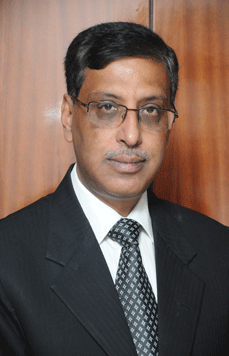Letter from the Editor - in - Chief
Dr. K. K. Jhunjhunwala
The Rohingya issue is indeed an ambivalent issue that touches the human hearts on one side while at the same time it creates a headache for Northeast India and the rest of the country. At the last estimate  about 40,000 Rohingya had already crossed over to India with 20,000 of them spreading to various parts of the country, including the National Capital Region (NCR).
about 40,000 Rohingya had already crossed over to India with 20,000 of them spreading to various parts of the country, including the National Capital Region (NCR).
Ever since independence, India has been constantly subjected to suffering due to Pak-sponsored terrorism. Having been burned by its neighbours time and again, it is the rightful duty of the government to examine all potential aspects before allowing any refugees to take shelter on the Indian soil. The government’s stand that the Rohingya presence poses a ‘security threat’ is understandable. Various intelligence agencies state that they have credible evidence to prove that efforts are already on by the Islamic extremists, viz., Al Qaeda, ISIS and other Pak-based terror outfits to take advantage of this displaced community.
A report in Times of India informed that Bangladesh had recently arrested three Rohingya and a Bangladeshi who were trying to smuggle 8 lakh pills of drug methamphetamine from Myanmar. This comes in the wake of migration of around 4.8 lakh Rohingya muslims to Bangladesh from Myanmar to escape the violence against them that began after an alleged attack by Rohingya insurgents attracted a military crackdown.
It is no secret that the Rohingya have already formed an insurgent organization called the ‘Arakan Rohingya Salvation Army (ARSA)’ which was formerly known as the Alyaqeen Faith Movement. Their latest statement in March 2017 emphasizing that they were obliged to “defend, salvage and protect (the) Rohingya community” clearly indicates that the organization is in a rebel mood. Evidently, the ARSA attack on border patrolmen leading to killing of 9 policemen has only added to the existing conflict situation between the Rohingyas and the local Myanmarese.
It is on record that the Rohingya are stateless citizen of Myanmar and they have been demanding their rights since a long time, which has not yet been granted to them. What the Myanmar government is doing presently is something that can be termed as ethnic cleansing. To quote the UN Secretary General Mr. Guterres, “The situation has spiraled into the world’s fastest developing refugee emergency, a humanitarian and human rights nightmare.” Unfortunately, Mr Guterres is right. The Indian Government’s initiative to add to the humanitarian grant is appreciable. What is disturbing is the silence of Nobel Laureate Aung San Suu Kyi. She used to be the perfect symbol of democracy, highly intelligent, well-read and articulate, and her current silence only serves to endorse the actions of the military regime. This does not fall in line with the principles for which she had been fighting throughout her life.
As the Northeast states share a long border with Bangladesh, there is a reason to be wary about. The heads of the region must be extra careful to the migration of refugees from Myanmar to avoid facing consequences in the future.

